Of the estimated 50.6 million students enrolled in K-12 public schools, about 3.2 million stand out from the pack. These kids are given a special name simply for scoring high on intelligence tests — “gifted”. To accommodate local students’ needs, the Parkway School District has fostered its own gifted program called MOSAICS.
The MOSAICS program was created to accelerate and enrich the educational environment of gifted students. After completing a test with a gifted specialist and being referred to the program by a school counselor, students enroll in the program. One of these students is junior Ronan Hatchell.
“[MOSAICS] was almost like an escape for me. I wasn’t too familiar with most of the kids in our elementary school, but I was able to be with people who were like me. Who I could get along with better. Who I could understand better,” Hatchell said.
In middle school, students enrolled in MOSAICS would alternate days attending the gifted program and Physical Education class. However, after hitting high school, students would no longer be enrolled in a separate class exclusively for gifted children. Instead, accelerated learning in AP and Honors classes could take the place of MOSAICS.
“[It] was certainly a weird experience. By which I mean, seeing all these people I didn’t know in the accelerated classes. [It was] cool, you know, new people, but it was weird to see that everyone else is also really smart. I wouldn’t say it knocked me down a peg—It’s kind of cool to see — but it also makes you wonder, then what am I? Why am I different in one way, but not the other?” Hatchell said.
After this transition from middle to high school, former members of the gifted program reported having less motivation to get assignments done. These signs point to the experience of burnout in students— the absence of motivation caused by improperly managed stress. Junior Riley Thering, also a former member of the gifted program, feels that this description closely describes the struggles she has faced after entering high school.
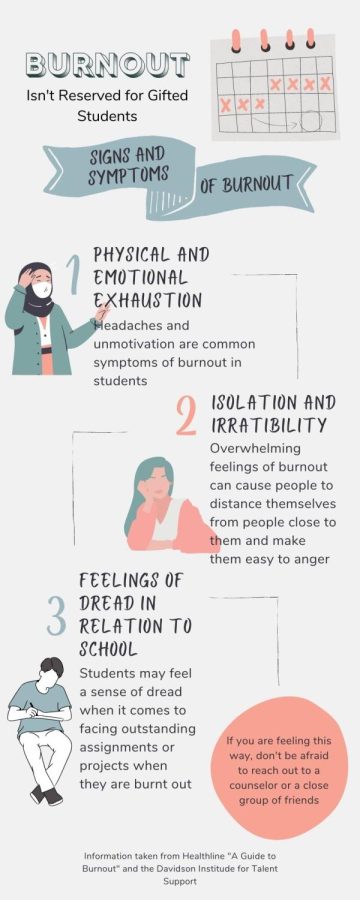
“I’ve just had no motivation to do schoolwork whatsoever. I get home, exhausted, lay in bed and yell at myself the entire time knowing I have to finish everything, even though I don’t have the motivation to do it. It slowly gets more overwhelming because there’s more and more schoolwork and more topics that I don’t understand. And it’s exhausting. I get less sleep because of it, it’s just a destructive cycle,” Thering said.
According to the Davidson Institute for Talent Support, a non-profit which works to open opportunities for gifted children, burnout can be seen in disengagement from interests, feelings of dread when relating to school, feeling overwhelmed at small tasks, general unmotivation, and more frequent anxiety.
“When I’m doing work, it’s not only a question of whether or not I am doing enough but also is it gonna be worth it? Like even when I put my mind to it, it doesn’t feel right sometimes,” Hatchell said.
While some believe that the gifted program is not tied to feelings of burnout in students, Thering feels that the pressure placed on herself and others from being in the program has a hand in worsening it.
“The pressure I put on myself because of the way I had been raised in the gifted program made the burnout stronger. I overwhelmed myself with having to get perfect grades,” Thering said. “And that’s not necessarily my parent’s fault or anything, but I was raised my whole life in MOSAICS getting praised for grades. Therefore, that became very important to me, or at least an area where I put a lot of pressure on myself.”
Amanda Megl, the gifted liaison for the Parkway High Schools and West Middle MOSAICS teacher, works to help lessen struggles like burnout in gifted students. However, Megl has still seen this phenomenon in a number of her own students.
“I think [burnout] is a kid by kid basis, so a lot of factors go into play. How strict are their parents? How high did their parents want them to achieve? What are the kids’ individual expectations for themselves? What kind of expectations do they have for the future? So I think, sometimes, kiddos can put a lot of stress on themselves because they want to please everyone and do really well,” Megl said. “They have these goals for their future and what they want to be, but sometimes they end up burning out because they don’t realize it’s okay to fail a little bit here and there. I currently have sixth graders who talk about ‘oh my gosh, I have a B’ like that’s a terrible thing. You have to be resilient because your whole life is not going to be perfect. You’re not going to make perfect grades, and you’re not going to be perfect at your job when you grow up.”
While Megl has implemented programs into the MOSAICS program to reduce student burnout, she still feels that gifted students suffer from it—especially members of the MOSAICS Academy Explorer Program. The Explorer Program allows eighth-grade students to attend certain high school classes and return to West Middle before the end of the school day.
“Some kids will start to feel burnt out…especially if they’re in the Academy Explorer Program. That can sometimes cause kids to have some burnout because they start going to high school when they’re in eighth grade, and taking high school level courses,” Megl said. “They’re accelerated one year above all their peers, so once they get to ninth grade, they’re doing 10th-grade work and so on, so forth. So I think that sometimes they can have some burnout with it. But that’s why I’m put in my position to help them out and give them some guidance if they need it.”
Although burnout has been attributed to enrollment in the gifted programs, the National Association for Gifted Children feels the programs still provide talented students outlets to challenge their thinking that is not provided in a typical classroom setting. Similarly, Parkway’s MOSAICS program was put into place to teach students research and technology skills and to think outside the box.
“It’s a program where they [students] get to relax. They get to do all of the things that cater to their strengths. So they get to be creative, [and] they get to problem solve. They get to think about things in different ways,” Megl said. “Sometimes in regular classes, they’re put in groups and do kind of what we would call like a cookie cutter activity. [A cookie cutter activity] was designed to be done exactly this way. Follow the steps and in the end, everybody’s stuff looks very similar, if not the same. In the gifted program, they have a little more leeway. They get a general idea of what they’re going to do, but everybody will make whatever they decide to.”
Former students may argue the complex issue of the effects of the gifted program, however, they still agree that overall MOSAICS is a positive program.
“I’d say there are certainly some negative aspects [to being in the gifted program], like the burnout I’ve clearly seen in myself and other people, but at the end of the day, I don’t know where I would be without it,” Hatchell said. “I’ve met so many great people, and done so many different things. If I had the choice to put myself in [the program], I would do it again. Sure burnout is never fun, but I think [the program] helps students like me.”



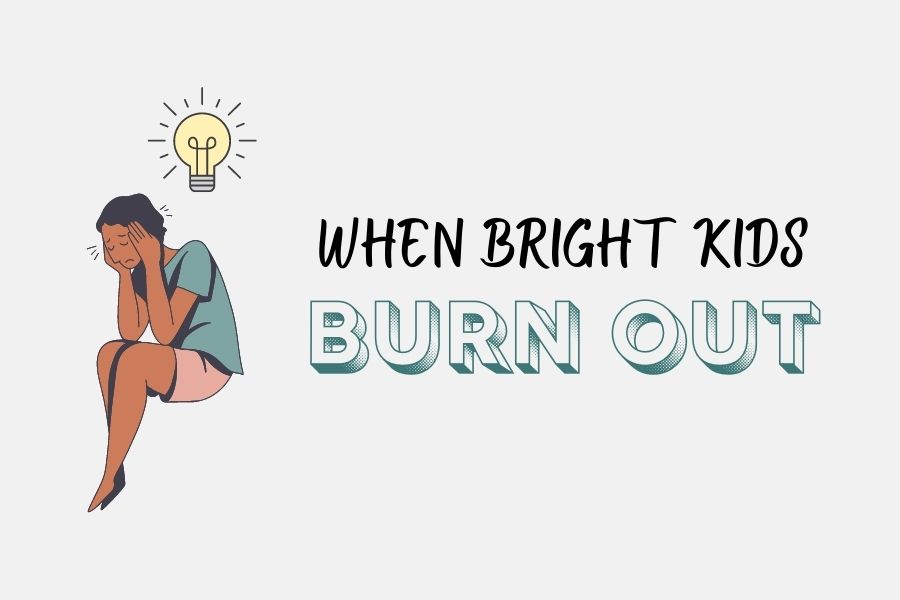

![The Glory of Missouri award recipients stand with their certificates after finding out which virtue they were chosen to represent. When discovering their virtues, some recipients were met with contented confirmation, while others, complete surprise. “I was not at all surprised to get Truth. I discussed that with some of the other people who were getting the awards as well, and that came up as something I might get. Being in journalism, [Fellowship of Christian Athletes and] Speech and Debate, there's a culture of really caring about truth as a principle that I've tried to contribute to as well. I was very glad; [Truth] was a great one to get,” senior Will Gonsior said.](https://pwestpathfinder.com/wp-content/uploads/2025/04/Group-Glory-of-Missouri.jpg)
![Freezing in their position, the Addams Family cast hits the “rigor mortis” pose after cast member and senior Jack Mullen, in character as Gomez Addams, calls out the stiff death move. For the past four months, the combined company of cast members, orchestra pit, crew and directors all worked to create the familial chemistry of the show. “I’m excited for [the audience] to see the numbers, the music, the scenes, but I also just love all the technical aspects of it. The whole spectacle, the costumes, makeup and the people that put in the work backstage in order to make the show successful on stage. I’m excited for people to see and appreciate that,” Mullen said.](https://pwestpathfinder.com/wp-content/uploads/2025/03/DSC0116-1200x800.jpg)
![This is the first year that the Parkway West Science Olympiad team competed at regionals. Team member and junior Anish Jindal competed in several events including Chem Labs, Experimental Design and Geological Mapping, earning top five placements in several events. “Compared with some of the other academic competitions at West [that can be] difficult to figure out how to get better, [Science Olympiad] is a lot more inclusive, having a broad group of people with different specialties,” Jindal said.](https://pwestpathfinder.com/wp-content/uploads/2025/03/DSC0391-1200x800.jpg)
![Raising his arm for a high five, freshman Abram Brazier plays with Early Childhood Center students during his first visit of the semester. Brazier joined his assigned class during their designated outdoor time. “[Child Development] gives me experience with how to talk [to] kids. We read them a book so knowing how to talk to them [was helpful]. Most of the [preschoolers] just came right up to us [and] played around,” Brazier said.](https://pwestpathfinder.com/wp-content/uploads/2025/01/gallery2-1200x800.jpg)
![Principal John McCabe announces that Jeffrey Chazen has won Teacher of the Year. Chazen was discussing freedom of speech with his AP Government class when the door opened and administrators rushed in. “[I was] extremely happy and humbled, but mostly shock[ed]. I've been here longer than any other teacher, so I know most of the people on the list of Teachers of the Year, and they are amazing teachers themselves,” Chazen said. “It's just nice to be on the list with them, including [social studies teacher Kristen] Collins, who is the only other social studies teacher who has won Teacher of the Year. It was nice to bring something back to the social studies department.”](https://pwestpathfinder.com/wp-content/uploads/2024/12/DSC_0021-1-2-1200x801.jpg)
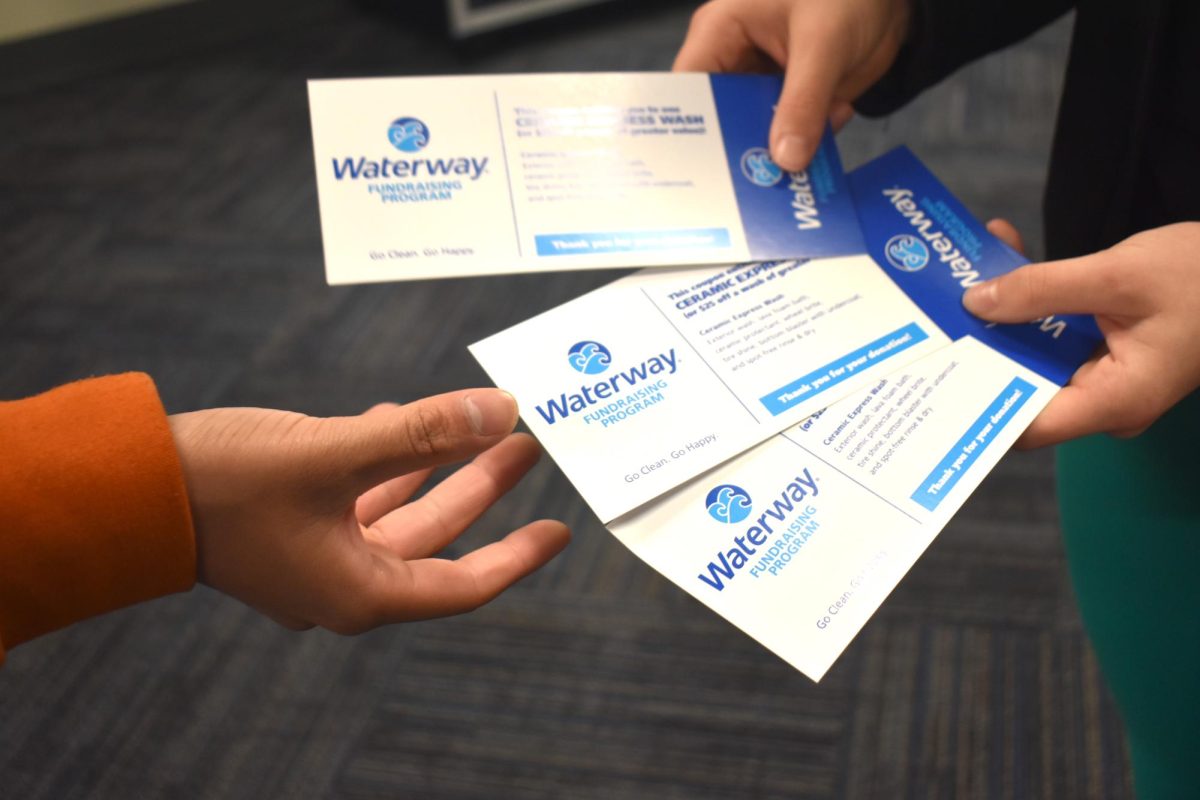
![Kicking off dress rehearsal, Mr. Longhorn contestant and senior Carson Hughes goes over the group routine alongside other competitors. With just two days of practice, all participants learned the entirety of their introductory dance, chose an occupation to embody and crafted skits for the show. “The best part of this [whole thing] was learning the dance and just practicing with the guys. We [have to] try not to laugh the whole time, but we're having a lot of fun,” Hughes said.](https://pwestpathfinder.com/wp-content/uploads/2024/11/IMG_5112-1-e1732164157549-1200x812.jpg)
![Blending together a concoction for a science experiment, science teacher Joel Anderson scares his students by bringing excitement and thrill into his classroom for his annual Halloween show. It took about six weeks for Anderson to set up his classroom for the show. “It’s pure terror. I came up with this idea a couple decades ago to do something fun for Halloween. So I pretend to be this mad scientist [that creates] a Frankenstein-like creature [with the class], learning a little bit of science along the way and [then ending] with a laser show. It’s just for fun; entertainment value,” Anderson said.](https://pwestpathfinder.com/wp-content/uploads/2024/10/DSC_0021.JPG_-1200x800.jpg)
![Voter registration is open for November’s presidential election through Oct. 9. On Oct. 2, students at West High were able to receive assistance with online registration in the library. “When I went into the library to [register to] vote, [librarian] Lauren Reusch made completing my registration very easy and clear. It’s important to learn about voting and it’s important that schools help with voter registration, because it can be confusing for first-time voters,” senior Gianna Lionelli said.](https://pwestpathfinder.com/wp-content/uploads/2024/10/Screenshot-2024-10-03-at-1.53.06 PM-1200x795.png)

![Pitching the ball on Apr. 14, senior Henry Wild and his team play against Belleville East. Wild was named scholar athlete of the year by St. Louis Post-Dispatch after maintaining a high cumulative GPA and staying involved with athletics for all of high school. “It’s an amazing honor. I feel very blessed to have the opportunity to represent my school [and] what [it] stands for,” Wild said.](https://pwestpathfinder.com/wp-content/uploads/2025/05/unnamed-6-1200x714.jpg)

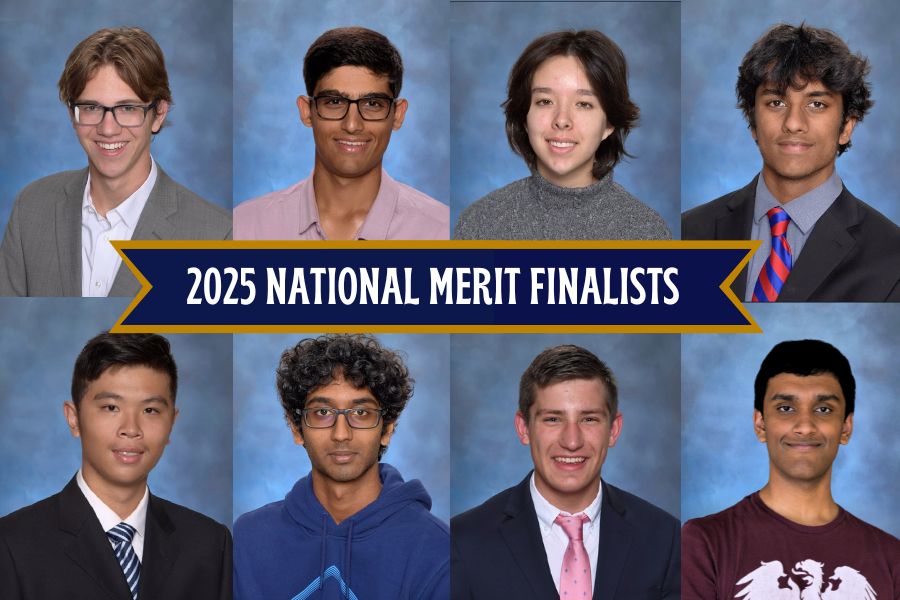
![Standing in Lambert Airport, French students smile for a photo before their flight. On March 10, the group of students began their 12-day trip to France, accompanied by French teacher Blair Hopkins and Spanish teacher Dominique Navarro. “The trip went smoothly. I think everybody enjoyed all three parts of it: Paris, Nice and the family home stay. The feedback I’ve gotten from all [of] the students has been positive, including several people already trying to plan a trip back to France,” Hopkins said.](https://pwestpathfinder.com/wp-content/uploads/2025/04/IMG_8146-1200x900.jpg)
![Adding a tray of canned corn to the pile, junior Michael Collop assists in transporting donations for the Holiday Food Drive. The event, hosted schoolwide from Dec. 10-17, raised over 5,000 food items to deliver to the Parkway Food Pantry, helping several families in need. "[The drive] is a great thing for us to do because you're giving to those who are less fortunate, and it helps provide for people who can't provide for themselves. [The] competition is always fun, too. It was fun to be in [social studies teacher Jeff] Chazen’s class, because he always gets worked up over [the competition]. He made it exciting, and was always convincing us to turn in cans for the drive,” Collop said.](https://pwestpathfinder.com/wp-content/uploads/2024/12/feature-photo-unsung-2.png)
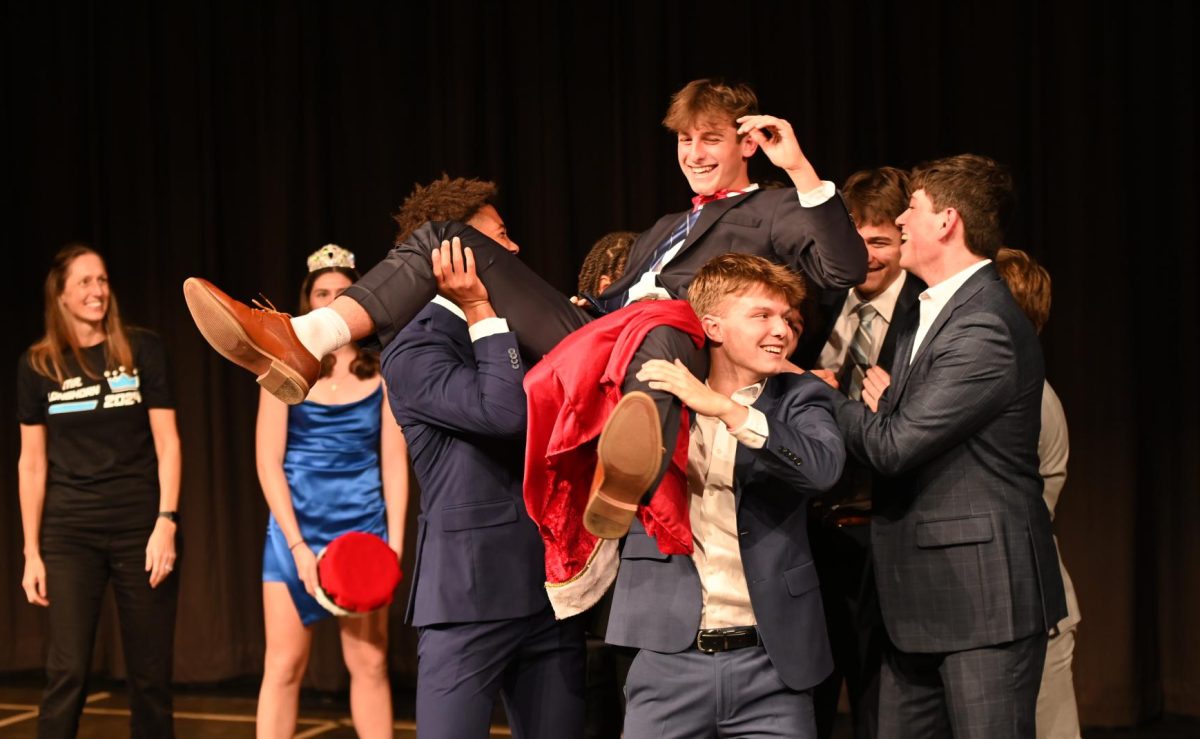
![Striking a pose following their group dance, the 2024 Mr. Longhorn contestants welcome their audience to the show. Throughout the night, the nine competitors participated in an occupational section, skits for the talent portion and a fashion attire show before finalists were interviewed. “It's a fun time getting to hang out with my friends and doing [our] acts. I think I'm most excited for my performance with [seniors Bart Connors, Gavin Hamlin and Colin Hughes]. I like that I get to dance a little bit. I don't think I'm very good, but I'm gonna try my best to put on a show,” contestant and senior Henry Wild said.](https://pwestpathfinder.com/wp-content/uploads/2024/11/DSC_9759-1200x798.jpg)
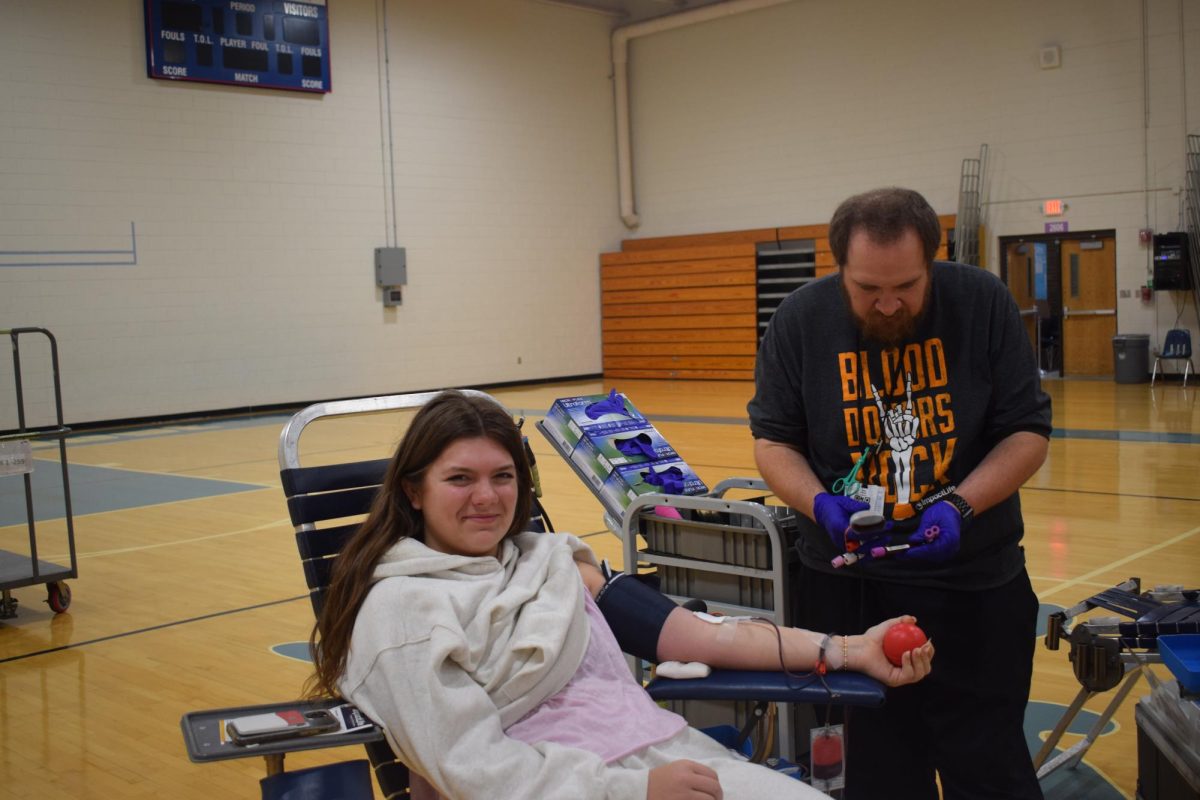
![Standing with girls cross country team mascot Pump the pumpkin, senior Sydney Etchason laughs with her teammates. Before the team’s senior night, Etchason undertook an odyssey to recover the pumpkin, which had been stolen by boys cross country. “We went through practice, and then a little birdie told me that it was in [senior] Emmett [Vernon's] car. I [offered Vernon] $50 to give us our pumpkin back, and we got Pump back,” Etchason said.](https://pwestpathfinder.com/wp-content/uploads/2024/10/DSC_0002-1-1200x800.jpg)

![Junior Fiona Dye lifts weights in Strength and Conditioning. Now that the Trump administration has instituted policies such as AI deregulation, tariffs and university funding freezes, women may have to work twice as hard to get half as far. "[Trump] wants America to be more divided; he wants to inspire hatred in people,” feminist club member and junior Clara Lazarini said.](https://pwestpathfinder.com/wp-content/uploads/2025/05/Flag.png)
![As the Trump administration cracks down on immigration, it scapegoats many immigrants for the United States’ plights, precipitating a possible genocide. Sophomore Annabella Whiteley moved from the United Kingdom when she was eight. “It’s pretty scary because I’m on a visa. When my visa expires next year, I’m not sure what’s going to happen, especially with [immigration] policies up in the air, so it is a concern for my family,” Whiteley said.](https://pwestpathfinder.com/wp-content/uploads/2025/05/DSC_0077-7copy.jpg)
![Shifting global trade, President Donald Trump’s tariffs are raising concerns about economic stability for the U.S. and other countries alike. “[The tariffs are] going to pose a distinct challenge to the U.S. economy and a challenge to the global economy on the whole because it's going to greatly upset who trades with who and where resources and products are going to come from,” social studies teacher Melvin Trotier said.](https://pwestpathfinder.com/wp-content/uploads/2025/05/MDB_3456-1200x800.jpg)
![Red, white and blue, the American flag holds the values of our democracy. The fight that we once endured has returned, as student journalists and senior correspondents across the country are losing their voices due to government control. “[Are] the White House and [the] government limiting free speech [and] freedom of the press? Yes [they are],” chief communications officer of the Parkway School District and former journalist Elisa Tomich said.](https://pwestpathfinder.com/wp-content/uploads/2025/03/Untitled-design-14.jpg)
![A board in the Parkway West counseling department displays pennants of selective universities. With a wide range of students interested in attending, it’s important that these schools have clear priorities when deciding who to admit. “[Washington University] had the major that I wanted, psychology, philosophy, neuroscience. That's a holistic study of the brain, and [WashU is] the only college in the world that offers that. That's the main reason I wanted to go; I got into that program,” senior Dima Layth said.](https://pwestpathfinder.com/wp-content/uploads/2025/02/Flag-1.png)
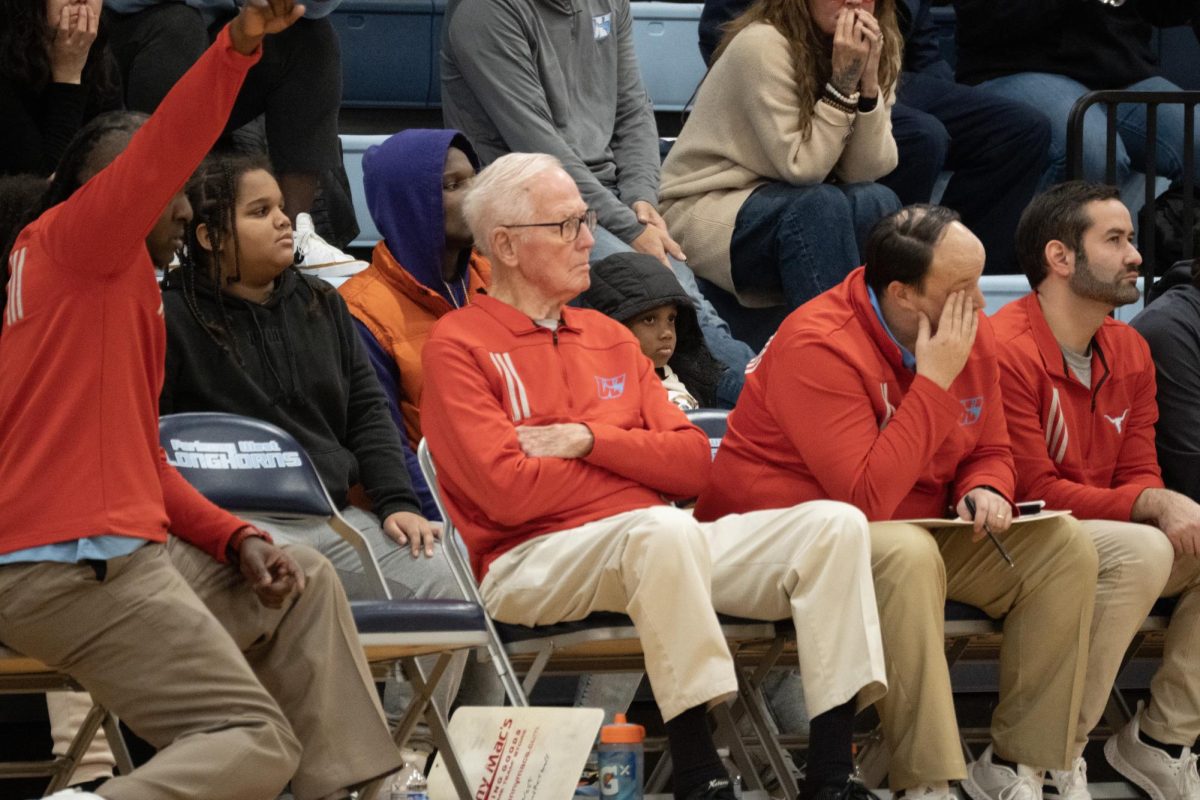
![Some of the most deadly instances of gun violence have occurred in schools, communities and other ‘safe spaces’ for students. These uncontrolled settings give way to the need for gun regulation, including background and mental health checks. “Gun control comes about with more laws, but there are a lot of guns out there that people could obtain illegally. What is a solution that would get the illegal guns off the street? We have yet to find [one],” social studies teacher Nancy Sachtlaben said.](https://pwestpathfinder.com/wp-content/uploads/2025/01/DSC_5122-1200x800.jpg)
![Within the U.S., the busiest shopping period of the year is Cyber Week, the time from Thanksgiving through Black Friday and Cyber Monday. This year, shoppers spent $13.3 billion on Cyber Monday, which is a 7.3% year-over-year increase from 2023. “When I was younger, I would always be out with my mom getting Christmas gifts or just shopping in general. Now, as she has gotten older, I've noticed [that almost] every day, I'll open the front door and there's three packages that my mom has ordered. Part of that is she just doesn't always have the time to go to a store for 30 minutes to an hour, but the other part is when she gets bored, she has easy access to [shopping],” junior Grace Garetson said.](https://pwestpathfinder.com/wp-content/uploads/2024/12/DSC_0249.JPG-1200x801.jpg)
![Complex global supply chains supply the goods for everyday luxuries, such as the coffee at West High’s Blue Brew. Low tariffs enabled much of the prosperity of modern history. “Higher tariffs lead to higher costs. A tariff is a tax on an imported good, and someone has to pay for that tax, and typically that [will] end up impacting consumers,” economics teacher Rachel Money said.](https://pwestpathfinder.com/wp-content/uploads/2024/12/Flag-1.png)
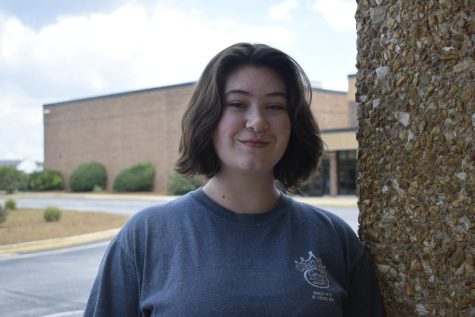
Emily Early • Dec 9, 2021 at 4:14 pm
Very well written. Amazing job going in-depth and showing the very real problem many students are facing.
Marilyn Wood • Dec 7, 2021 at 11:54 pm
Great article about a very real problem which seems to be getting worse in our schools.
Kim • Dec 2, 2021 at 6:44 pm
A thoughtful article about a very real problem we are facing.